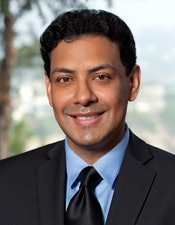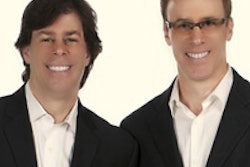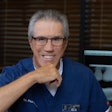
As a dental professional, you may struggle to fill some less popular slots in your schedule, which translates to lost overhead and opportunity costs. ZendyHealth, a website that describes itself as the "Priceline for medical services," wants to help you solve that problem.
 Vish Banthia, MD, founder and chief medical officer of ZendyHealth.
Vish Banthia, MD, founder and chief medical officer of ZendyHealth.Essentially, ZendyHealth matches cash-paying patients to practitioners who need to fill scheduling holes. Using an online platform, patients pick one medical, dental, or beauty procedure they want or need and enterthe price they are willing to pay. Then, providers pick the offer that works for their practice and schedule patients based on their unfilled availability.
"I wanted to find some solutions that created a better value proposition for both parties," said Vish Banthia, MD, founder and chief medical officer of ZendyHealth, in an interview with DrBicuspid.com. "Initially, a version of the concept was tested in a real-life format in my own practice, and I saw positive results there. That's why we created something online so that others could benefit."
Launching a disruptive company
Dr. Banthia, a facial, plastic, and reconstruction surgeon, has been in practice for more than a decade, so he knows first-hand the lost opportunity of having holes in a schedule. He noted that some providers who work in more pricey areas may be losing thousands of dollars if an appointment goes unfilled, and bringing in a new patient, even at a lower rate, can add tremendous value to the practice over a lifetime.
"So how do we find a solution using technology? That was the premise of ZendyHealth, where we're using technologies to better help create efficiencies in patient scheduling and practice scheduling so that the overhead and sunk costs are minimized," he said. "[We're] also creating opportunities to create revenues and patient a base."
The basic concept of ZendyHealth has been around for a few years. The site was formerly known as ZendyBeauty, and it originally focused exclusively on cosmetic medical procedures. Dr. Banthia describes this time as the company's "BetaMVP" period, which was the development and testing phase.
“We're using technologies to better help create efficiencies in patient scheduling and practice scheduling so that the overhead and sunk costs are minimized.”
"When we were ZendyBeauty, we called it our BetaMVP just to test out and model the hypothesis we had -- whether people were willing to bid for medical types of services and make offers, and whether providers would accept those offers, because it's kind of a disruptive concept," he explained. "And we were seeing positive feedback from both the patient as well as the provider."
Since rebranding to ZendyHealth, the company now offers various dental procedures, the most popular of which are implants, teeth whitening, teeth cleaning, and Invisalign. The company also offers other medical services, such as sleep studies, allergy tests, and CT scans.
Should a provider decide that the patient is not a candidate for a particular procedure, they are not obliged to perform it. Providers also get a premium listing on ZendyHealth's site, which boosts the provider's own website through search engine optimization.
However, not every provider who applies gets accepted to the platform. ZendyHealth has a medical advisory team that looks each practitioner's qualifications, including academic background, licensure, credentials, and a combination of commercial and health-specific review websites.
"We basically do the homework for the patient. ... We have a stellar team of medical advisors; we also have an oral surgery advisor," Dr. Banthia explained. "We're looking at the criteria in terms of volume for certain procedures, especially for dental implants. If somebody just took a weekend course for dental implants, that provider may not be approved for offering that service."
Growing the start-up and making money
KTLA, a Los Angeles-based TV news network, featured ZendyHealth in early June 2015, and since then, the startup has been growing around 1,000% month over month, according to Dr. Banthia. That momentum has continued, as ZendyHealth was recently accepted into 500 Startups, an early-stage seed fund and accelerator program that has helped launch many companies, including PicCollage, PlateJoy, and MakerBot.
As word gets out, there has been more demand from patients and providers to increase the number of services and specialties offered, and the ZendyHealth team is looking into requests for procedures such as veneers and smile consultations. Dr. Banthia also noted that several customers who have used ZendyHealth for one type of procedure, such as dermal fillers, are coming back for additional ones, like teeth whitening.
During this initial phase, ZendyHealth is offering its services complimentary to providers, and those that are accepted into the network will have free access for a lifetime. After the initial phase, the company will likely switch to a subscription fee model for new providers in addition to a portion of the transactional revenue that the company takes on the customer side, Dr. Banthia said.
Bringing in the next wave of patients
At a time when people comparison shop online for medical services and travel to other countries for extensive dental work, ZendyHealth's customers represent a changing trend toward more affordable care. Dr. Banthia, who doesn't have dental insurance himself and would rather pay for services as needed, said that the way people look for and purchase healthcare is changing, partially because of outside trends such as high unemployment and large student loans for recent college graduates.
"That's the up-and-coming generation that we're looking at, and I think that's going to be the wave of the future of how people are going to be purchasing merchandise, whether it's socks or T-shirts versus actual healthcare procedures," he said. "People are going to making more active, smarter decisions financially, as opposed to in the past where people were relying on provider networks and through word of mouth."
Dr. Banthia argues that ZendyHealth's model, in which providers can anonymously schedule discount-seeking patients, helps bring in new customers without hurting the practice's brand value. In contrast, if a practitioner used a public advertisement or discount website, other patients would know that provider is willing to offer a lower-than-advertised price.
With ZendyHealth's growth and apparent customer interest, Dr. Banthia may be on to a new trend, and perhaps the way practitioners schedule some types of patients in the future is about to change.
"Dental insurance plans don't make any sense for a lot of people," he concluded. "That's not to say that dental insurance is bad by any means, but we're just providing another utility source, another tool for those patients who may or may not have dental insurance."



















